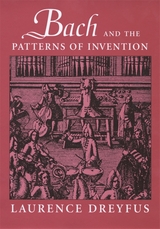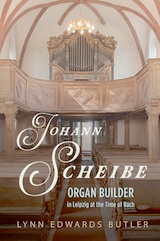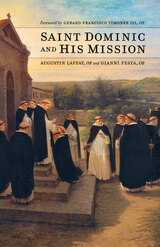

In this major new interpretation of the music of J. S. Bach, we gain a striking picture of the composer as a unique critic of his age. By reading Bach’s music “against the grain” of contemporaries such as Vivaldi and Telemann, Laurence Dreyfus explains how Bach’s approach to musical invention in a variety of genres posed a fundamental challenge to Baroque aesthetics.
“Invention”—the word Bach and his contemporaries used for the musical idea that is behind or that generates a composition—emerges as an invaluable key in Dreyfus’s analysis. Looking at important pieces in a range of genres, including concertos, sonatas, fugues, and vocal works, he focuses on the fascinating construction of the invention, the core musical subject, and then shows how Bach disposes, elaborates, and decorates it in structuring his composition. Bach and the Patterns of Invention brings us fresh understanding of Bach’s working methods, and how they differed from those of the other leading composers of his day. We also learn here about Bach’s unusual appropriations of French and Italian styles—and about the elevation of various genres far above their conventional status.
Challenging the restrictive lenses commonly encountered in both historical musicology and theoretical analysis, Dreyfus provocatively suggests an approach to Bach that understands him as an eighteenth-century thinker and at the same time as a composer whose music continues to speak to us today.

Johann Sebastian Bach holds a singular position in the history of music. A uniquely gifted musician, he combined outstanding performing virtuosity with supreme creative powers and remarkable intellectual discipline. More than two centuries after his lifetime, Bach’s work continues to set musical standards.
The noted Bach scholar Christoph Wolff offers in this book new perspectives on the composer’s life and remarkable career. Uncovering important historical evidence, the author demonstrates significant influences on Bach’s artistic development and brings fresh insight on his work habits, compositional intent, and the musical traditions that shaped Bach’s thought. Wolff reveals a composer devoted to an ambitious and highly individual creative approach, one characterized by constant self-criticism and self-challenge, the absorption of new skills and techniques, and the rethinking of riches from the musical past.
Readers will find illuminating analyses of some of Bach’s greatest music, including the B Minor Mass, important cantatas, keyboard and chamber compositions, the Musical Offering, and the Art of Fugue. Discussion of how these pieces “work” will be helpful to performers—singers, players, conductors—and to everyone interested in exploring the conceptual and contextual aspects of Bach’s music. All readers will find especially interesting those essays in which Wolff elaborates on his celebrated discoveries of previously unknown works: notably the fourteen “Goldberg” canons and a collection of thirty-three chorale preludes.
Representing twenty-five years of scholarship, these essays—half of which appear here in English for the first time—have established Christoph Wolff as one of the world’s preeminent authorities on J. S. Bach. All students, performers, and lovers of Bach’s music will find this an engaging and enlightening book.

Drawing on extensive research and previously untapped archival materials, Lynn Edwards Butler explores Scheibe's professional relationships and the full range of his projects. These assignments included the three-manual organ for St. Paul’s Church, renovations of the organs in the important churches of St. Thomas and St. Nicholas, and the lone surviving example of Scheibe's craft, a small organ in the nearby village of Zschortau. Viewing Scheibe within the context of the era, Butler illuminates the music scene of Bach's time as she follows the life of a gifted craftsman and his essential work on an instrument that anchored religious musical practice and community.
READERS
Browse our collection.
PUBLISHERS
See BiblioVault's publisher services.
STUDENT SERVICES
Files for college accessibility offices.
UChicago Accessibility Resources
home | accessibility | search | about | contact us
BiblioVault ® 2001 - 2025
The University of Chicago Press









